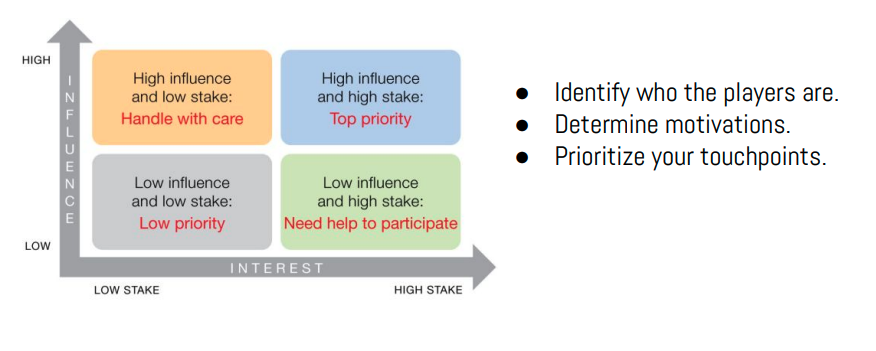Updated on December 7, 2023
WATCH THE REPLAY
Join the Rent Responsibly Network to access the replay of this and other leader seminars. Once inside the network, join the STR Community Builders Group and visit its resource library.
Already a member? Log in here.
Professional advocates such as paid lobbyists operate in much the same way whether that be at a city council, county commission, or state legislature. As a short-term rental advocate, it helps to learn strategies from these professionals to make sure you have a voice in the policy-making process.
During the most recent Rent Responsibly Leadership Seminar, R.C. Rondero De Mosier, an Austin-based consultant with STR Advocates LLC, shared some of his professional tips on how you can be a more effective player in advocating for our industry.
“It’s more critical now than ever to be deeply engaged with advocacy,” said Dana Lubner, Rent Responsibly’s Director of Community Development, who emceed the webinar. “In recent years, the short-term rental industry has experienced tremendous growth, making it an integral part of travel and hospitality,” she said. “However, as we know, growth comes with change. And that includes increased regulatory scrutiny. And navigating these regulatory changes and advocacy for the future of short-term rentals has become more complex than ever. As our industry faces evolving challenges, it’s imperative that we come together as a community of advocates and leaders.”
Here are key takeaways from the webinar.
Research the regulatory history
Before getting started in advocacy, it’s important to understand the existing regulatory framework and who has jurisdiction over rules governing vacation rentals. Research the history of the ordinance in your community and find out if any state laws preempt local laws. Look at past versions of the ordinance, read newspaper articles about developments in the ordinance, and take note of decision makers and influencers.
“If you are in one city, you should be able to, just on your own, understand the rulemaking and regulatory change practices or steps in your particular jurisdiction,” R.C. said. Alternatively you can look for a lobbyist who already knows the political landscape in your community.
There’s a short-term rental and vacation rental ordinance change somewhere in the country on an almost daily basis. One way to keep up-to-date on these changes is to subscribe to Google Alerts with keywords such as short-term rental and city council. You can customize your keywords to your local area by writing your city, county, or state name.
Develop an advocacy strategy
Professional advocacy means having a strategy and plan of action ready in advance before regulatory changes are proposed, and that plan should address the top four issues that are typically the impetus for regulatory changes: trash, noise, parking, and access to housing.
“If you’re a professional that works in any kind of advocacy role, you need to know the politics of a matter, you need to know how housing issues are pressuring a particular city or county, you need to know who’s about to be elected, you need to know who has a seat at the table with the decision makers, and of course, you need to know regulations and rulemaking in your particular jurisdiction,” R.C. said.
Identify the decision makers
Know which regulatory bodies are involved in making decisions about vacation rentals. Even if though it may appear the rules come from your local city or county, it’s good to educate yourself on the state law to learn if any state laws take preemption.
You also need to understand the roles within other city bodies. For example, a zoning commission might take a vote, but that vote doesn’t set policy; it just recommends a policy to the city council. Likewise, city staff may craft policy proposals, but they do not decide what ultimately is passed – the city council does.
Read More: Regulations 101: A primer on how short-term rental rules are made
Understand the stakeholders
Before you can craft messaging for your advocacy effort, you need to understand the other stakeholders in short-term rental regulations, particularly your opponents. One way to do this is what’s called stakeholder mapping.
Stakeholder mapping is identifying who the players are in your market, determining their motivations, and prioritizing their touch points.

Look at who’s influential in this market, who’s got an interest in the outcome, and then plot them accordingly on the map. This will help you prioritize your limited amount of time to focus on those who will be easiest to persuade or who have access to other decision makers.
Develop consistent messaging
Creating a consistent message means you’ll be taken more seriously when you talk to elected officials.
In order to craft your message, identify a feasible outcome that you would like to see happen. Understand the messaging from the opposing parties, so that you can address those concerns in your messaging.
One message to communicate frequently to a city or county is your desire to play by the rules. Push out consistent messages about trying to be good neighbors, following rules and regulations, paying all applicable taxes, and operating as a small business.
Based on your research and your messaging, decide who you are going to approach and how frequently. Keep tabs on highly influential people, both opponents and allies. If possible, build up a coalition of people with common goals and interests and come up with consistent messaging that you can communicate as a group.
Read Next: The Ultimate Guide to Building a Short-Term Rental Alliance
Time your message. Are you going to deliver your message before a hearing? Are you going to be doing it during a planning commission meeting? Are you going to give the message to city staff?
Most people that go in front of city council to speak are complaining. Consider the way the political winds are blowing as far as that particular item getting voted on and figure out what outcome you want. Do you want to try to kill the proposal? If that’s not possible, suggest an alternative.
“Frame everything in a request to amend on the dais if you’re at the city council level,” R.C. said.
City council members, respectfully, we asked you to amend the language in the ordinance to say [insert your request].
Additionally, offer yourself as a resource. Note how long you have been operating short-term rentals and offer your expertise, insights, and data on the industry.
“You as a resident, as a constituent, you are highly influential. And so your story is going to be really important whether you deliver it or the professional advocate you hire delivers it,” R.C. said.
Hire a lobbyist or follow their example
Lobbyists are professional advocates who are paid to try to effect change and influence other advocates, public officials, and paid city or county staff. They may work for an individual, an organization or corporation, or a coalition of stakeholders with a common cause.
They generally have a playbook for how they approach advocacy efforts on behalf of any client regardless of the topic. Clients bring the subject-area expertise – in this case, vacation rentals – and the lobbyist will know the form for advocating for that subject.
A professional advocate can save a lot of time and effort in trying to develop relationships with decision makers and influencers. They also can help you along with your strategy.
Read more: How to pick a short-term rental lobbyist
“People who are professional advocates have a long track record of relationships, and then by extension can influence the decision making,” R.C. said. “Those folks also have knowledge of each step of the regulatory process.”
Lobbyists also understand the pressures and concerns facing public officials. This is important to know because it helps you to craft messaging that takes those pressures and concerns into account.
To find a lobbyist, check with your respective city or county and find out if lobbyists need to register and request access to that registry.
Look at past city council meeting minutes or observe a meeting to see if any lobbyists or advocates are working on an issue. Get in contact with them to find out if they can help or know someone who can help.
A local chamber of commerce or local trade association may also have contacts who are lobbyists or advocates.
…

